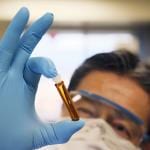If your local bishop, the bishops’ conference, the Vatican, and moral theology principles from the Fathers & Doctors disagree whether an act is moral, discernment is in order. If all agree, or most agree & others are silent, we should listen. There is no way to go astray following the Church. This is all the more true when there is agreement both locally and universally, both now and historically. Seeking out another bishop who has no authority over you but confirms our bias is not the Catholic way.
For example, the Vatican, the USCCB, and at least 37 individual US bishops all agree it is moral to take the Moderna or Pfizer vaccine. (Many other local bishops do too.) Both are also supported by the principles of moral theology regarding remote material cooperation in evil.
This article will cover three things: remote cooperation according to the patron saint of moral theology, how remote these vaccines are & highlights from a few episcopal statements.
St. Alphonsus Liguori

Unfortunately, although a masterpiece, no English translation exists of Liguori’s Teologia Moralis. Thus, I have summaries and a translation below. An article in Ethics & Medicine from the National Catholic Bioethics center notes:
St. Alphonsus Liguori (d. 1787) made the principles of cooperation acceptable by introducing the distinction between formal and material cooperation and by a consideration of scandal as a serious invitation to sin. Cooperation in the ethically significant sense is defined as the participation of one agent in the activity of another agent to produce a particular effect or share in a joint activity.
The Catholic Health Association of the United States translates and explains a few lines:
Formal cooperation is always morally wrong. Immediate material cooperation is also morally wrong. Mediate material cooperation can be morally licit in some cases. While everyone has a moral duty to avoid cooperating in evil as much as possible, sometimes there are situations in which it is permissible to cooperate in a mediate material way in order either to gain some good or to prevent the loss of some good.
The basic conditions for acceptable mediate material cooperation have been summarized by St. Alphonsus. (citing: St. Alphonsus Liguori, Theologia moralis, I, II, tract. III, cap. 2, dub. V, art. III, n. 63.)
1) The act of the cooperator must be “in itself either good or indifferent.”While on one level this might seem selfevident, it also serves as a reminder that one may never perform an intrinsically immoral action even if one hopes by means of this action to obtain some good result.
2) The cooperator must have a reason for cooperating that is “just and proportionate to the gravity of the sin of the other and to the proximity of the contribution that is provided to the performance of the sin.” In other words, any licit act of mediate material cooperation requires a good to be gained or an evil to be avoided that is proportionate both to the gravity of the principal agent’s wrongdoing and to the causal proximity of the cooperator’s act to the act of the principal agent.
These two provide a good summary of this moral theology. Furthermore, it’s impossible (or almost so) to avoid quite remote cooperation in evil.
The Remoteness of These Vaccines
A few days ago, I explained how remote getting this vaccine is from the act of abortion. I repeat it here:
In 1973 a three-month-old fetus died, either by abortion or miscarriage. (If it was by miscarriage and the mother consented to donate part of her child’s body to medicine, there is no evil to be cooperated in.) Some kidney cells were grown in the lab and became known by the scientific name HEK293. The cells of that dead baby are now gone but the descendant cells are still cultivated. These cells have been used for hundreds of experiments. Some testing of the Pfizer and Moderna vaccines are included in those hundreds of experiments.
In speaking of this remoteness, we need to look at the steps removed. First, the abortion or miscarriage was not done for the cell line, but was happening anyways. Second, the cells were not created for this experiment but already existed. Third, this was a test of the vaccine not the production of the vaccine. Fourth, in one test done by each company, the test didn’t even use HEK293 directly but used mice descendant from a mouse edited with HEK293 to produce human rather than mouse lung-lining proteins. So, yet another step removed.
Appropriation vs. cooperation
On top of this, it is important to note what cooperation entails. Cooperation means we in some small way contributed to an otherwise preventable act. If a man delivers beer, he has remote material cooperation in the drunkenness of those who drink the beer he delivered.
Appropriation is similar to cooperation and often is cooperation but is not necessarily so. Appropriation is where you take some good from some prior already completed evil act. This is cooperation if it contributes to the continuation of that act. For example, if I buy something made by slave labor in Africa, it’s appropriation but also cooperation as they are more likely to keep using slave labor to make that. However, if I take data from scientific studies done by Nazis, it can be appropriation without cooperation. For example, Trent Horn mentioned that they did experiments in death camps about hypothermia that can’t ethically be repeated. However, that data provides info we can’t get other ways. We can appropriate that data without even cooperating, as nothing about taking that data would encourage anyone to freeze someone to death again.
In the triply or quadruply remote steps above, we need to ask if any are appropriation without cooperation.
Some would argue that the use of fetal cell lines is only appropriation, not cooperation as this does not contribute to another abortion. However, I do think it might contribute to taking more cells from an aborted fetus. Some argue that such cell lines are immortal. They reproduce a long time but are not quite immortal. In fact, in 2015 new cells were taken from another fetus to start Walvax-2 where the fetus and cell type were chosen to imitate MRC-5. MRC-5 is an existing cell line used in some other vaccines. The new line was similar but reproduced more quickly. I suspect if MRC-5 had fallen out of favor before then, Walvax-2 would never have been created. This is a very remote connection to taking a few cells from a single source. Thus, not a big moral issue, but not without the issue of cooperation.
On the other hand, we need to ask if a test done using HEK293 as in the Moderna and Pfizer vaccines is appropriation with or without cooperation. The big question here is whether this test is done once or repeated for quality control in manufacturing. It would be cooperation in the continuation of this cell line if the cell line was continually used in repeated tests.
I’ve gone in-depth on the preceding two topics before in Public Discourse.
Key Statements on COVID Vaccines
Even when dealing with vaccines a step or two closer to the act of abortion than the Moderna & Pfizer COIVD Vaccines, I noted:
The Vatican (a 2nd time [#35d], & a 3rd time), the English Bishops, the National Catholic Bioethics Center, Catholic Medical Association, an Archbishop with a bioethics doctorate, a priest with doctoral degrees in both moral theology and microbiology, most Catholic moral theologians and bioethicists, and even the SSPX all agree that it is permissible to get such vaccines.
USCCB
The USCCB stated regarding these vaccines:
“Receiving one of the COVID-19 vaccines ought to be understood as an act of charity toward the other members of our community. In this way, being vaccinated safely against COVID-19 should be considered an act of love of our neighbor and part of our moral responsibility for the common good.”
With regard to the AstraZeneca vaccine, the bishops found it to be “more morally compromised” and consequently concluded that this vaccine “should be avoided” if there are alternatives available. “It may turn out, however, that one does not really have a choice of vaccine, at least, not without a lengthy delay in immunization that may have serious consequences for one’s health and the health of others,” the bishop chairmen stated. “In such a case … it would be permissible to accept the AstraZeneca vaccine.”
One US bishop even got vaccinated publicly to demonstrate it is moral and encourage others.
Vatican
The Vatican will use one of these vaccines on their own employees soon. The Vatican also made a statement that we should ensure vaccines for all. These possible moral issues with very remote cooperation in evil seemed less important than depriving the poor of vaccines.
The 2017 Pontifical Academy for Life note even argues towards appropriation without cooperation regarding vaccines that are more proximately related to abortion:
Especially in consideration of the fact that the cell lines currently used are very distant from the original abortions and no longer imply that bond of moral cooperation indispensable for an ethically negative evaluation of their use. […]
The technical characteristics of the production of the vaccines most commonly used in childhood [including those grown on fetal cell lines] lead us to exclude that there is a morally relevant cooperation between those who use these vaccines today and the practice of voluntary abortion. Hence, we believe that all clinically recommended vaccinations can be used with a clear conscience and that the use of such vaccines does not signify some sort of cooperation with voluntary abortion. While the commitment to ensuring that every vaccine has no connection in its preparation to any material of originating from an abortion, the moral responsibility to vaccinate is reiterated in order to avoid serious health risks for children and the general population.
There seems to be disagreement on whether this is remote material participation in evil that can be allowed for some other good, or it is merely appropriation that does not even have that remote negative aspect. However, both agree on the morality of vaccination
Conclusion
As I began with, when all the levels of ecclesiastical authority over you agree on the morality of an act, you can follow their advice with a fully clean conscience. If they disagree some discernment is in order. In neither case should we seek out some bishop who might agree with us. This is all-the-more, when as Jeff Mirus says:
[His statement] deliberately and directly contradicts what the Ordinary Magisterium of the Church has taught on the subject. […]To identify (as the statement does) abortion as an evil which is in a horrendous class all its own, a class that excludes the normal rules of moral reasoning, is more a function of the politicization of this evil over the past two generations than of sound analysis. We cannot suspend the long-established rules of Catholic moral reasoning just because of our revulsion at a particular form of evil. […] [His Statement] presumes to settle the fundamental moral question definitively—including a direct contradiction & condemnation of Dignitatis Personae, an instruction of the CDF approved & ordered to be promulgated by Pope Benedict XVI. […] [His Statement] is what we call giving scandal. The statement expressly states that the teaching of the Ordinary Magisterium is “in itself contradictory and cannot be acceptable to Catholics.”
So, please listen to the bishops over you and get vaccinated. It is for your own health and the health of those around you.
Update: CDF Statement
Not long after I posted this, the Congregation for the Doctrine of the Faith published a note approve by Pope Francis indicating such vaccines are ethical. Here’s the key line:
When ethically irreproachable Covid-19 vaccines are not available… it is morally acceptable to receive Covid-19 vaccines that have used cell lines from aborted fetuses in their research and production process.
I also updated a link above that had linked to a prior Vatican document now to link to this one.
Note: Please support me on Patreon to write more like this.












